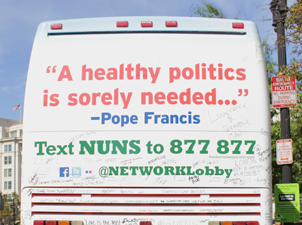
Jeff Sessions is Wrong On Crime – Again!
Joan Neal
May 26, 2017
When Attorney General Jeff Sessions ordered federal prosecutors to seek the harshest penalties possible under the law for all drug crimes, he signaled he wants to send us back in time. We tried that strategy and research has shown that it didn’t work. Under the ‘tough on crime’ approach, during the War on Drugs in the ‘80s and ‘90s, the U.S. prison population soared and the costs of incarceration increased dramatically. Why, then, would we want to go back to a system that failed to lower crime levels or to make us safer? Such a policy is clearly wrong on crime.
This order is a direct attempt to undo all of the progress the Obama Administration was attempting to make by focusing on rehabilitation of drug offenders, especially low level, non-violent offenders, and reducing the federal prison population, resulting in millions of dollars of savings in the federal budget. In contrast, this ‘law and order’ policy will have exactly the opposite effect. It will not stop – nor even slow down – the drug trade because it is not targeted and it will cost taxpayers more money. ‘One-size fits all’ sentencing does not deter crime, save money, or make us safer.
But Jeff Sessions has been ‘wrong on crime’ for a long time. As a Senator, he constantly opposed the growing congressional bi-partisan consensus on sentencing and prison reform, eventually, successfully blocking passage of any reform measure in the Senate. Now, as Attorney General, he is seeking to institutionalize his outdated, ill-conceived policies that will only prolong the injustices already inherent in the criminal justice system.
History shows that mass incarceration, overcriminalization and prison warehousing have a disproportionately negative impact on communities of color and other marginalized groups. Having a criminal record is a one-way ticket to intergenerational poverty. It is an obstacle to employment, housing, education, healthcare and more. It devastates families and is a drag on the American economy. Jeff Sessions’ orders will insure that these conditions continue.
Thankfully, proponents of criminal justice reform across the board are still fighting for common sense reforms. Both houses of Congress have bills pending. Just this week, Senators Patrick Leahy and Rand Paul re-introduced the Justice Safety Valve Act which is aimed at restoring judicial discretion by giving federal judges the authority to impose sentences below the mandatory minimums when appropriate. Reforms such as this will begin to restore fairness and equity.
The U.S. has the highest prison population of any country in the world. This is not a distinction worthy of our values and identity as a proponent of freedom and liberty. Our union is not yet perfect but we should always be working toward that goal. Indiscriminately locking up people for long periods of time, no matter the severity of the crime, is unjust and immoral. Our faith teaches us that there is always the possibility of rehabilitation. The Attorney General’s approach to fighting crime denies the right of every person to be treated with dignity and respect. It is inefficient, ineffective and un-American and we should do everything possible to turn it around.














